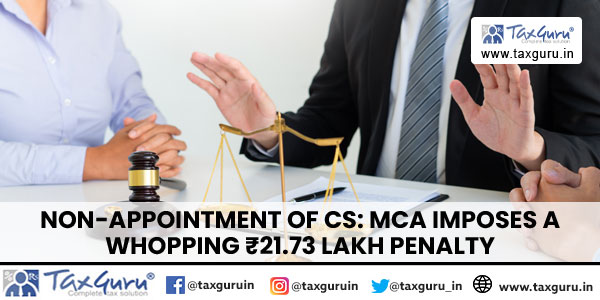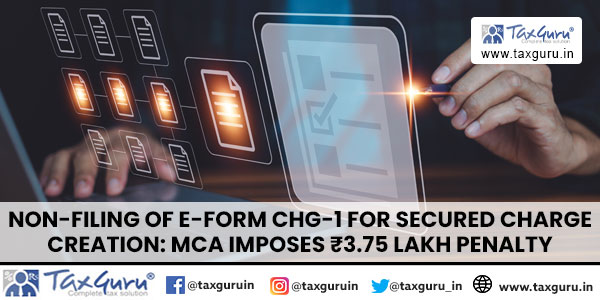Aditya Narwekar*

To facilitate economic growth and make India a five trillion dollar economy in the next five years, the Finance Minister, Nirmala Sitharaman, in her maiden Budget speech for the Financial Year 2019-2020, made policy announcements and proposed amendments to existing economic policies, infrastructure development programs and the taxation regime. There were also clarifications of existing tax laws to reduce ambiguity and litigation.
One such clarificatory amendment in the taxation regime is to amend the definition of “demerger” to eliminate confusion and difficulties for companies that are required to comply with the Indian Accounting Standards (Ind-AS).
Currently, the provisions of section 2(19AA) of the Income-tax Act, 1961 (Act) define “demerger” in relation to companies, as a means of transfer undertaken pursuant to a Scheme of Arrangement under sections 230 to 232 of the Companies Act, 2013, whereby one or more undertakings of the demerged company (transferor company) is transferred to the resulting company (transferee company) after attaining approval of the National Company Law Tribunal. Such transfers are said to be exempt transfers (i.e. not taxable under the Act) if certain conditions are satisfied.
Some conditions under section 2(19AA) of the Act for a tax neutral demerger include transfer of all assets and liabilities of the undertaking by the demerged company to the resulting company, issue of shares as consideration by the resulting company to the shareholders of the demerged company, transfer of the undertaking on a going concern basis, etc. Section 2(19AA)(iii) of the Act also states that the assets and liabilities of the undertaking would need to be transferred by the demerged company as per the values appearing in the books of accounts immediately before the demerger, which means that the transfer has to be done at book value.
Until the introduction of Ind-AS, companies followed the accounting standards under the Indian Generally Accepted Accounting Principles (Indian GAAP). However, no specific accounting standard was prescribed under the Indian GAAP for demergers, and hence, companies transferred the assets and liabilities of undertakings at book value to comply with the definition of “demerger” under the Act. Therefore, the demerged company used to transfer assets and liabilities at book value and the resulting company used to record assets and liabilities at book values.
Ind-AS was introduced in India to align with International Financial Reporting Standards (IFRS) by modifying the IFRS to suit the requirements of the Indian economy. The Ind-AS regime introduced the concept of “business combinations,” which captured transactions such as mergers, demergers, slump sales, etc. Ind-AS 103 being the accounting standard for business combinations provides guidance on the accounting principles to be followed for business combinations and states that the acquirer should record business combinations between unrelated parties at their acquisition-date fair values.
This created hardship for many Ind-AS companies undertaking demerger activities in which the accounting standard required the resulting company to record assets and liabilities at a fair value that was different from the book value recorded by the demerged company. This led to ambiguity that if section 2(19AA) of the Act was followed, the provisions of Ind-AS were not being adhered to, which could lead to qualification by auditors in the audit report. Whereas, if the assets and liabilities were recorded at their fair values in compliance with the requirements of Ind-AS, there was a risk of the demerger being construed as not tax neutral, and hence, would be subjected to tax. The contradiction in the provisions of tax and Ind-AS created confusion for companies statutorily required to comply with the provisions of Ind-AS and raised concerns on whether the anomaly relating to fair value accounting under Ind-AS and book value under section 2(19AA) of the Act could jeopardise the tax neutrality of demergers.
As there were multiple interpretations of the provisions of law under tax and Ind-AS, one being that a demerger is not tax neutral since the provisions of section 2(19AA) of the Act are not complied with. Another view was that such fair valuation is required from the acquirer’s perspective to comply with Ind-AS and from the tax perspective, the condition of transfer at book value is for the demerged company. With these views arose chances of litigation and difference in stand of different authorities at different forums.
Therefore, the Finance Minister in the Finance Bill, 2019, has proposed to amend section 2(19AA) of the Act to allow the resulting company to record the value of assets and liabilities of the undertaking being demerged at a value different from the book value in compliance with Ind-AS and still be regarded as tax neutral demerger.
The proposed amendment would be effective from 01 April, 2020 and would apply from Assessment Year 2020-2021 onwards.
Although this is a huge relief for Ind-AS companies planning to undertake demerger in the future, what happens to companies that have undertaken or are in the process of undertaking demergers? The Finance Bill, 2019, is silent on this much needed clarification.
The Government has presented various proposals and reforms to lessen the burden of litigation and the proposed relaxation in the definition of “demerger” is one such step in this direction.
This proposed alignment of tax neutrality of demerger with the accounting requirements of Ind-AS is a welcome change, which would facilitate more M&A activity in India. However, since the proposed amendment is applicable prospectively, further clarifications are necessary on whether the benefit would be available to past demergers also.
*Author: Aditya Narwekar – Partner, M&A Tax, PwC India
The views expressed in this article are personal. The article includes input from Meghana Goud – Manager – M&A Tax, PwC India and Aditi Divakar – Associate – M&A Tax, PwC India



























Sir what will be the effect in Tata Chemical demerger case as the appointed date of the scheme was 1st April 2019 and there was non- common control.